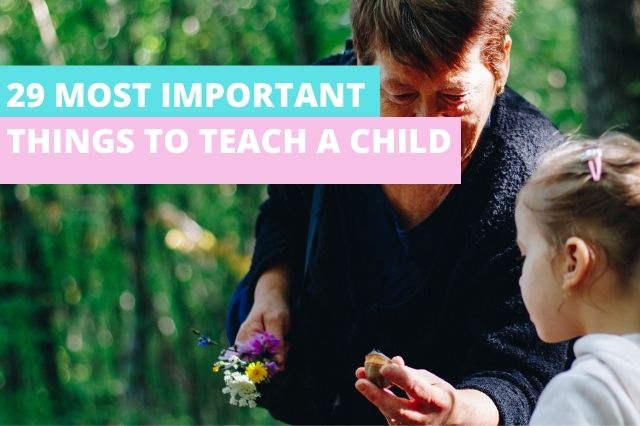If you’re a parent looking for a better way to discipline and communicate with your child, you’ve come to the right spot. This revolutionary product provides practical techniques and guidance on how to effectively parent without resorting to yelling. By implementing these strategies, you’ll be able to create a nurturing and respectful environment for your child while still maintaining discipline and setting boundaries. Say goodbye to the stress and frustration of yelling, and discover a more positive approach to parenting.
Understanding the Effects of Yelling on Children

Yelling at children can have a significant impact on their emotional well-being. When children are exposed to yelling on a regular basis, it can lead to feelings of fear, anxiety, and insecurity. They may develop low self-esteem and struggle with self-confidence. Yelling can also affect their ability to regulate their emotions and manage stress in healthy ways. It is important for parents to understand that their words and tone of voice can have a lasting impact on their children’s emotional development.
Recognizing the potential long-term effects of yelling on children’s behavior
Yelling can also have long-term effects on children’s behavior. Research has shown that children who are yelled at frequently are more likely to exhibit aggressive behavior themselves. They may struggle with impulse control and have difficulty following rules and instructions. Yelling can also damage the parent-child relationship and negatively impact the overall family dynamics. It is crucial for parents to be aware of the potential consequences of yelling and take proactive steps to address and prevent these effects.
Exploring the consequences of frequent yelling on parent-child relationships
Frequent yelling can strain the parent-child relationship. When children are yelled at, they may begin to view their parents as authoritarian figures rather than nurturing caregivers. This can lead to a breakdown in communication and trust between parents and children. Yelling can create a negative and hostile environment where children may feel afraid to express their thoughts and emotions openly. It is important for parents to recognize the impact of yelling on their relationships and work towards building a healthier and more positive dynamic with their children.
Building a Positive Parent-Child Relationship
Fostering open communication and active listening
One of the key factors in building a positive parent-child relationship is fostering open communication and active listening. When parents create a safe and non-judgmental space for their children to express themselves, it encourages healthy dialogue and strengthens the bond between them. Active listening involves fully engaging with your child, acknowledging their feelings, and validating their experiences. By actively listening to your child, you show them that their thoughts and opinions are valued, which can lead to greater trust and understanding in the relationship.
Setting clear boundaries and expectations
Setting clear boundaries and expectations is another important aspect of building a positive parent-child relationship. Children thrive when they have a clear understanding of what is expected of them. When parents communicate their expectations and boundaries effectively, it helps children develop a sense of security and structure. Clear boundaries also promote self-discipline and accountability. By setting and reinforcing boundaries consistently, parents can create a healthy and respectful environment at home.
Using positive reinforcement and rewards
Positive reinforcement and rewards can be powerful tools in building a positive parent-child relationship. Instead of focusing solely on discipline and punishment, parents can emphasize encouragement and praise when their children exhibit positive behavior. By acknowledging and rewarding their efforts, parents can reinforce good behavior and build their child’s self-confidence. This positive approach fosters a supportive and loving atmosphere where children feel valued and motivated to continue behaving positively.
Effective Discipline Techniques
Setting consistent consequences for misbehavior
Consistency is key when it comes to disciplining children. Setting consistent consequences for misbehavior helps children understand the direct impact of their actions. When children know what to expect when they misbehave, it promotes a sense of fairness and predictability. Consistent consequences also provide a clear framework for children to recognize and correct their behavior. It is important for parents to communicate these consequences calmly and assertively, without resorting to yelling or aggression.
Implementing time-outs as a calm-down strategy
Time-outs can be an effective discipline technique for children. When a child is misbehaving or becoming overwhelmed, a time-out allows them to take a break and calm down. During a time-out, it is important for parents to create a designated space where the child can reflect on their behavior. This should be a calm and quiet area without distractions. Time-outs should be age-appropriate and set for a specific timeframe. It is essential for parents to explain the purpose of the time-out and follow through consistently.
Using alternative discipline methods such as loss of privileges
In addition to time-outs, parents can also implement alternative discipline methods such as loss of privileges. When a child consistently disobeys rules or engages in negative behavior, temporarily removing a preferred activity or privilege can be an effective consequence. For example, if a child is repeatedly not completing their homework, the parent may restrict their access to electronics until the homework is completed. This technique encourages accountability and teaches children about the consequences of their actions.
Modeling appropriate behavior for children to follow
Parents play a crucial role in modeling proper behavior for their children. Children often learn by observing and imitating their parents’ actions. If parents consistently exhibit respectful and appropriate behavior, it sets a positive example for their children to follow. This means controlling your own emotions and responding calmly and assertively in frustrating situations. By modeling self-control and effective problem-solving, parents can instill these skills in their children and promote positive behavior.
Practicing Emotional Regulation as a Parent

Learning self-calming techniques to prevent yelling
As a parent, it is important to practice emotional regulation and learn self-calming techniques to prevent yelling. When you find yourself becoming overwhelmed or frustrated, take a moment to pause and collect your thoughts. Deep breathing exercises, mindfulness techniques, and counting to ten can help you regain control of your emotions. It is also helpful to remind yourself of the potential negative impact yelling can have on your child’s well-being. By practicing self-calming techniques, you can respond to challenging situations in a calm and composed manner.
Identifying triggers and finding alternative responses
Another important aspect of emotional regulation is identifying your personal triggers and finding alternative responses. Reflect on the situations or behaviors that tend to lead to yelling, and explore why they provoke such a reaction. Understanding your triggers can help you anticipate and manage them more effectively. Once you have identified your triggers, brainstorm alternative responses that promote calmness and problem-solving. This could involve taking a short break, seeking support or advice from a partner or friend, or finding a healthy outlet for your frustrations.
Seeking support from a partner, friend, or therapist
Practicing emotional regulation can be challenging, especially during times of stress or when facing difficult parenting situations. It is essential to seek support from a partner, friend, or therapist. Having someone to confide in and share your experiences with can provide valuable perspective and guidance. A supportive individual can also help you maintain accountability and remind you of your commitment to parenting without yelling. Additionally, a therapist can assist you in developing personalized coping strategies and provide a safe space to explore and address any underlying emotions or traumas.
Promoting Emotional Intelligence in Children
Teaching children to identify and express their emotions
Promoting emotional intelligence in children involves teaching them to identify and express their emotions. Encourage your child to verbalize how they are feeling in various situations. Help them recognize different emotions and discuss the reasons behind those feelings. By providing a safe environment for emotional expression, you allow your child to develop a deeper understanding of their own emotional experiences. This understanding is crucial for healthy emotional regulation and strong interpersonal relationships.
Encouraging empathy and understanding towards others
Empathy is a key component of emotional intelligence. Encourage your child to consider how others might be feeling in different circumstances. Teach them to recognize and validate the emotions of their peers, siblings, and even adults. By fostering empathy, you help your child develop compassion, understanding, and the ability to build healthy relationships with others. Model empathetic behavior by showing concern and compassion for others in your interactions with your child.
Helping children develop problem-solving skills
Problem-solving skills are vital for emotional intelligence and overall well-being. Encourage your child to think critically about challenges they face and help them develop problem-solving strategies. Instead of immediately providing solutions, guide your child through the process of brainstorming, evaluating options, and making decisions. This empowers them to become independent problem-solvers. By cultivating problem-solving skills, you equip your child with the tools to navigate difficult situations and manage their emotions effectively.
Implementing Effective Communication Strategies
Using ‘I’ statements to express feelings and concerns
When communicating with your child, using “I” statements can help express feelings and concerns in a non-confrontational manner. For example, instead of saying, “You never listen to me,” try saying, “I feel frustrated when I don’t feel heard.” This approach focuses on your own emotions and experiences, rather than placing blame on your child. It encourages open dialogue and fosters understanding between both parties.
Avoiding blame and criticism in conversations with children
Blaming and criticizing children can have a detrimental impact on their self-esteem and the parent-child relationship. Instead of pointing fingers and focusing on their mistakes, focus on problem-solving and constructive feedback. Use language that highlights potential solutions and encourages growth. For example, instead of saying, “You always make a mess,” try saying, “Let’s work together to find a system that keeps things organized.”
Teaching children active listening and respect for others
Teaching children active listening skills is crucial for effective communication and building strong relationships. Encourage your child to give their full attention when someone is speaking to them, and help them understand the importance of truly hearing and understanding others. Teach them to ask questions, offer support, and validate the feelings of others during conversations. By fostering active listening and respect for others, you create an environment where communication flows more smoothly and genuinely.
Creating a Calm and Structured Environment
Establishing daily routines and predictable schedules
A calm and structured environment is essential for promoting positive behavior and emotional well-being. Establishing daily routines and predictable schedules can provide a sense of security and stability for your child. Outline consistent times for meals, homework, play, and bedtime. This consistency allows your child to anticipate and prepare for their daily activities, reducing stress and promoting a sense of routine and order.
Creating a designated calm-down space for children
Children need a designated calm-down space where they can retreat when they are feeling overwhelmed or upset. This space can be a specific corner in their room or a comfortable area elsewhere in the house. Fill this space with calming items such as soft pillows, stuffed animals, or books. Help your child understand that this space is a safe haven for them to collect their thoughts, regulate their emotions, and relax.
Minimizing chaos and clutter in the home
A cluttered and chaotic environment can contribute to feelings of stress and overwhelm for both parents and children. Minimizing chaos and clutter in the home can create a more peaceful atmosphere. Encourage regular tidying and organization as a family activity. Designate designated spaces for toys, books, and other belongings. By maintaining an organized environment, you not only reduce stress but also promote a sense of responsibility and accountability for your child.
Utilizing Positive Parenting Techniques
Encouraging autonomy and independence
Positive parenting involves encouraging autonomy and independence in children. Allow your child age-appropriate opportunities to make decisions, take responsibility for their actions, and learn from their mistakes. This helps foster confidence and self-reliance. Provide guidance and support rather than micromanaging their every move. By promoting autonomy, you empower your child to become a capable and independent individual.
Using natural and logical consequences
In positive parenting, natural and logical consequences are used to teach children about the outcomes of their behavior. Natural consequences are the direct result of a child’s actions, while logical consequences are imposed by the parent and directly related to the behavior. For example, if a child refuses to wear a coat, the natural consequence may be feeling cold outside. A logical consequence could involve temporarily losing the privilege to play outside until they agree to wear appropriate clothing. These consequences encourage accountability and help children learn from their choices.
Practicing positive reinforcement and affirmation
Positive reinforcement and affirmation are powerful tools in positive parenting. Acknowledge and praise your child’s efforts, achievements, and positive behavior regularly. This can be as simple as saying, “I appreciate how responsible you were in completing your homework,” or “I noticed how kind you were to your sister today.” By providing specific and genuine positive feedback, you strengthen your child’s self-esteem and motivate them to continue behaving positively.
Building a Support System
Seeking guidance from other parents or support groups
Parenting can be challenging, and seeking guidance from other parents or joining support groups can provide valuable insight and support. Connecting with others who are going through similar experiences can offer a sense of community and understanding. Online forums, local parenting groups, and community centers often offer resources and opportunities for parents to connect and share their parenting journey. These connections can provide emotional support, validation, and practical advice.
Taking care of oneself and prioritizing self-care
Building a support system also involves prioritizing self-care as a parent. Parenting requires physical and emotional energy, and it is important to recharge and replenish oneself regularly. Engage in activities that bring you joy and relaxation, and make self-care a priority. This could involve exercising, practicing mindfulness, pursuing hobbies, or spending quality time with loved ones. By nurturing your own well-being, you are better equipped to show up as a patient, empathetic, and calm parent.
Recognizing the value of professional support
Sometimes, parenting challenges can be complex and require professional guidance. Recognize the value of seeking support from therapists or counselors who specialize in child development and family dynamics. These professionals can provide valuable insights, strategies, and interventions tailored to your specific situation. Professional support can be particularly beneficial when dealing with challenging behaviors, emotional difficulties, or significant life changes within the family. Don’t hesitate to reach out for help when needed.
Continuously Learning and Growing as a Parent
Staying open-minded to new parenting methods
Parenting is a continuous learning process, and it is important to stay open-minded to new parenting methods and ideas. As your child grows and changes, so too should your approach to parenting. Take the time to learn about different parenting styles, strategies, and philosophies. Attend workshops, read books, and engage in ongoing education. Embrace a growth mindset as a parent, continuously seeking knowledge and adapting your parenting techniques to best suit the needs of your child and your family.
Reading books and attending workshops on effective parenting
Books and workshops can serve as valuable resources for learning and improving parenting techniques. Many experts in the field of child development and parenting publish books and offer workshops that provide practical advice and strategies. Look for reputable sources and choose books and workshops aligned with your parenting goals and values. The insights gained through reading and attending workshops can help you refine your parenting skills and gain new perspectives on effective parenting techniques.
Seeking feedback and advice from trusted sources
Seeking feedback and advice from trusted sources can offer valuable perspectives and help you grow as a parent. Turn to trusted family members, friends, or mentors who have experience raising children. They can provide guidance, share personal experiences, and offer different insights into potential solutions. However, it is important to keep in mind that every child is unique, and not all advice will work for your specific situation. Use your own judgment and adapt advice to suit your child’s individual needs.
Conclusion
In conclusion, parenting without yelling is an ongoing process that requires active effort, self-reflection, and a commitment to building positive parent-child relationships. Understanding the impact of yelling on children’s emotional well-being and behavior is crucial in order to implement effective parenting strategies. Building a positive parent-child relationship entails fostering open communication, setting clear boundaries, using positive reinforcement, and modeling appropriate behavior. Effective discipline techniques involve consistent consequences, time-outs, and alternative discipline methods. Practicing emotional regulation as a parent involves self-calming techniques, identifying triggers, and seeking support. Promoting emotional intelligence in children requires teaching them to identify and express emotions, encouraging empathy, and helping them develop problem-solving skills. Implementing effective communication strategies involves using “I” statements, avoiding blame and criticism, and teaching active listening. Creating a calm and structured environment involves establishing routines, providing a designated calm-down space, and minimizing chaos and clutter. Utilizing positive parenting techniques entails encouraging autonomy, using natural and logical consequences, and practicing positive reinforcement. Building a support system involves seeking guidance, prioritizing self-care, and recognizing the value of professional support. Continuously learning and growing as a parent involves staying open-minded, reading books, attending workshops, and seeking feedback. By implementing these strategies and continuously striving to improve, parents can create a nurturing and positive environment for their children to thrive.






